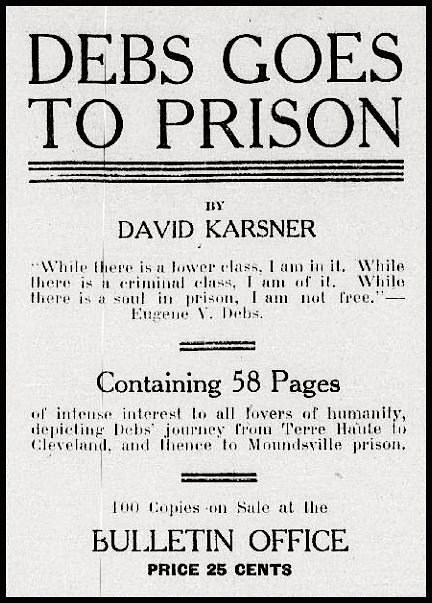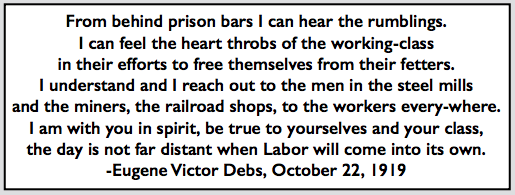 ———-
———-
Hellraisers Journal – Monday February 23, 1920
David Karsner, of New York Call, “Paints Debs with Loving Hands” -Part II
From The Butte Daily Bulletin of February 13, 1920:

[Part II of II.]
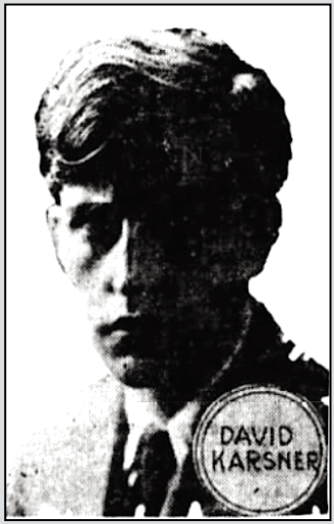
Debs was born in Terre Haute, Ind., Nov. 5, 1855. The sixty-five years between that date and the present day which sees him in United States penitentiary at Atlanta, Ga., are of startling significance in the social and economic history of this country.
“He was one of 10 children of Jean Daniel Debs and Marguerite Bettrich Debs, both natives of Alsace.”
“Jean Daniel Debs possessed a well-equipped library of French history as well as the works of some of the most noted French writers including Victor Hugo who was one of their favorites. Very early in his life, Eugene became acquainted with the works of Hugo and the master’s characterization of Jean Valjean in “Les Miserables,” made an indelible impression upon his mind.”
Debs in his early youth saw the Civil war, and Karsner wonders “to what extent these scenes and sounds of conflict influenced Eugene Debs to take his stand against war, but it is notable that not once during his long and varied career as a labor leader has he safe-counseled violence as means to the settlement of any dispute.”
Eugene’s school years were cut short by the necessity for earning money. At the age of 14, Debs began work in the shops and later as locomotive fireman for the Terre Haute and Indiana Railroad company. At first he received one dollar a day, but later, as fireman, was paid on a mileage basis. “Eugene’s pay envelope, which he turned over to his mother unopened, was decidedly slim.”
Debs’ first step in the organized labor movement was taken when the local lodge of the brotherhood of locomotive fireman was organized at Terre Haute on the evening of Feb. 27, 1874. He served in various official capacities as organizer. In 1892 he resigned from a position in which he was receiving $4,000 a year so that he might receive from the American Railway union a $75-a-month position.
Continue reading “Hellraisers Journal: From Butte Daily Bulletin: Review of “Debs, His Authorized Life and Letters” by David Karsner, Part II” →
 —————
—————
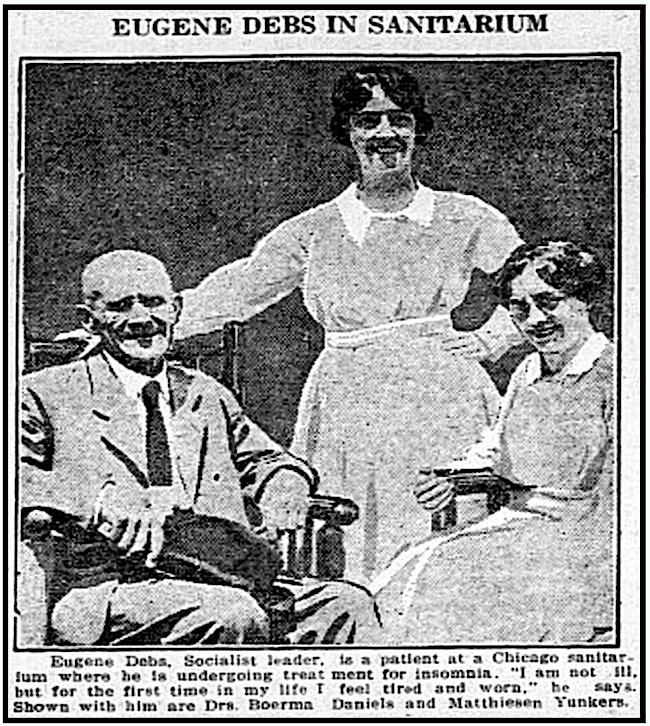
 —————
—————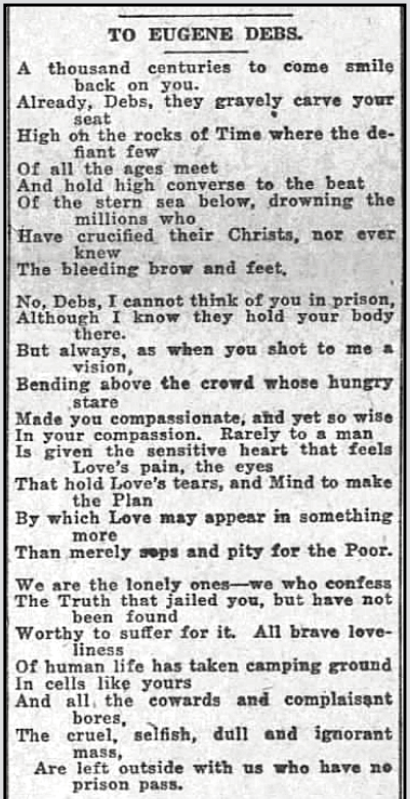
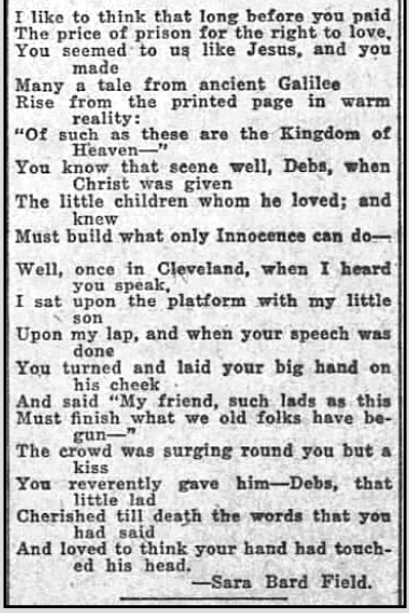
 ———-
———-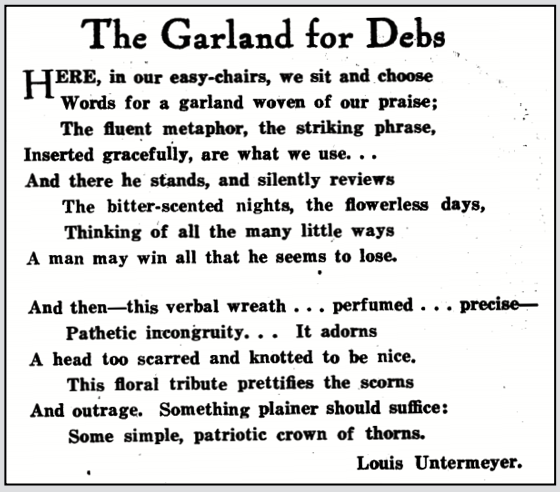
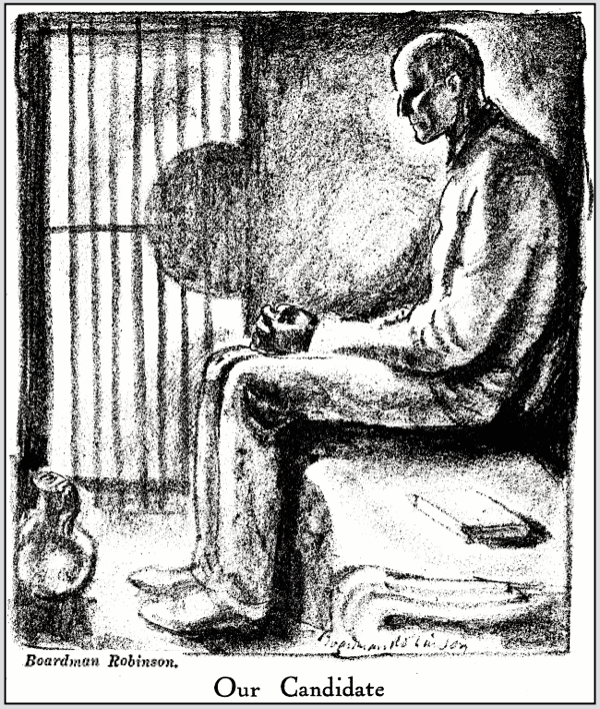
 ———-
———-

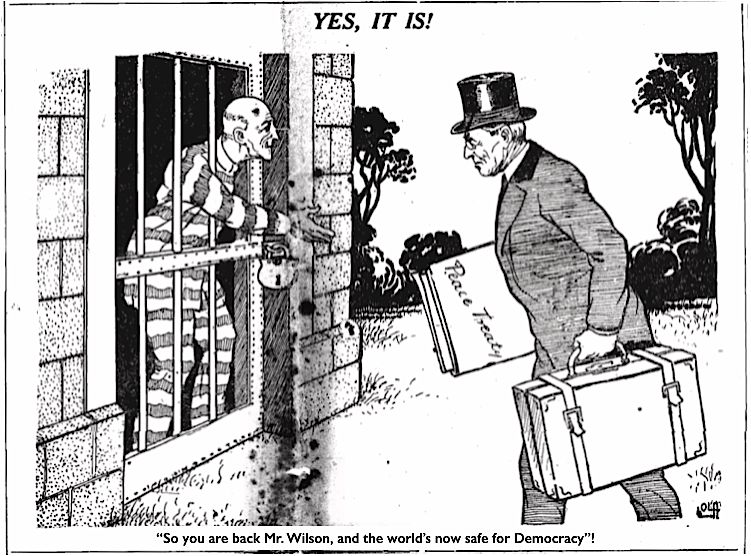
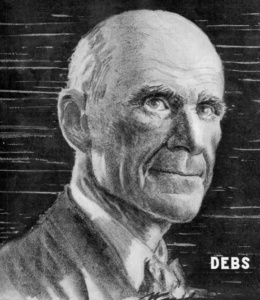
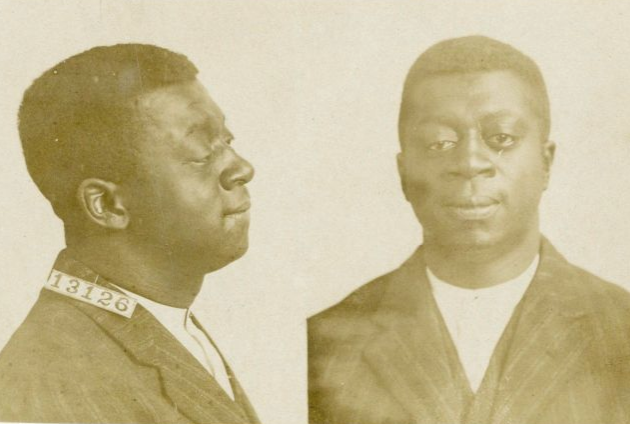
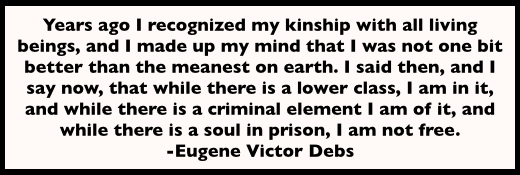 ———-
———-